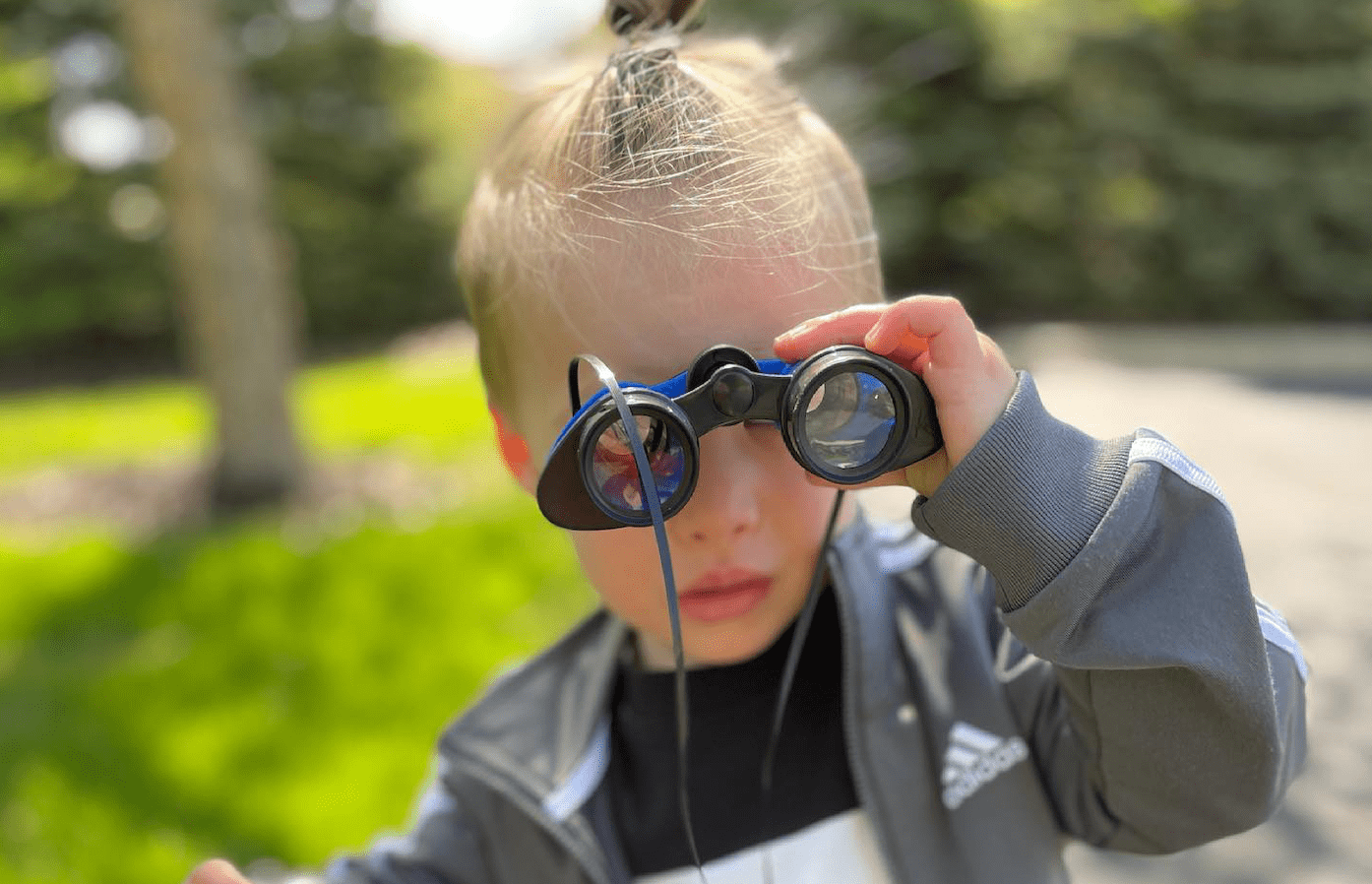
In between more structured learning experiences, it’s important that little bodies have time to engage in outdoor play. As the weather warms up, we are all naturally drawn to spending more time outside. Time spent outdoors has immense emotional, physical, and mental benefits for everyone—especially children. If your little one has had more screen time than usual due to virtual learning, this summer could be a great opportunity to explore the great outdoors. Here are five benefits your child will gain from additional time outdoors.
1. Outdoor play improves gross motor skills.
One of the most important aspects of outdoor play is the effect it can have on physical skills like balance, agility, and strength. It can also improve gross motor skills that children need to jump, run, and throw objects. Many parents are committed to daily reading as part of their child’s routine. It’s important to make daily movement just as much of a priority as early literacy. Your child’s health, immunity, and physical coordination will all benefit from outdoor play.
2. Outdoor play builds strong minds.
Playing outside doesn’t just build strong bodies. It also plays a huge role in consolidating memories and building connections between different areas of the brain. There are numerous studies supporting this assertion, and even more investigation is being done in this field. In fact, recent research shows that exercising four hours after learning something new encodes the information in our brains. (Deep, restorative sleep has a similar effect.) To help your child retain all that they’re learning in their early years, frequent outdoor activity is key.
3. Outdoor play restores emotional equilibrium.
Preschoolers have very specific needs and wants, so in order to keep them safe, caretakers must step in to provide boundaries. Little ones want to practice autonomy and decision-making skills, and outdoor play can help restore emotional equilibrium in preschoolers (and their parents). Cardiovascular activity sends feel-good endorphins to brains of all sizes, helping them take disappointments in stride and cultivate an optimistic attitude.
4. Outdoor play fosters independence.
You’ve probably heard your preschooler assert their independence hundreds of times. Preschoolers love doing things independently from adults. Doing so can build confidence, self-reliance, and faith in their own competency. Outdoors is a great setting for encouraging independence in your child. Find an outdoor space where they can have autonomy in choosing their activities and engaging in self-directed play. The creativity and problem-solving you’ll see them display might surprise you!
5. Outdoor play creates an appreciation for the natural world.
As a child, you may remember watching a caterpillar inch along a leaf or noticing a bird pull a worm from the ground. These moments of mindfulness help encourage reflection and observation skills in little ones. Spending time outdoors can cultivate a love for nature, a respect for living creatures, and curiosity about the biological and physical processes happening every single day. This early exposure helps inspire curiosity about S.T.E.M. topics that kids can also explore at an academically-focused preschool.
The Gardner School Gives Kids New Experiences Indoors and Outside The Classroom
With a full suite of enrichment courses, a commitment to academics, our degreed and highly qualified teachers, and our inviting indoor and outdoor play spaces, we provide the very best learning environment for the youngest members of your family.
Contact us today to learn more, or check out our virtual tours on our website for The Gardner School nearest you. You’ll quickly see why parents choose The Gardner School to help build curious young learners who are prepared for kindergarten and beyond.
